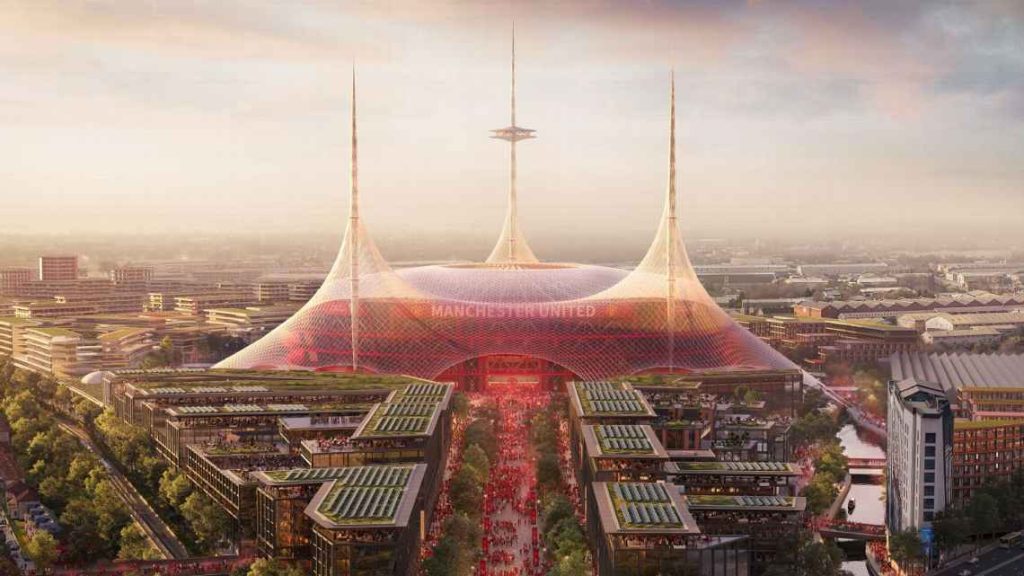
Manchester United's ambitious plan to construct what Sir Jim Ratcliffe proclaims as "the world's greatest football stadium" has sparked a fervent debate among fans and experts alike. The proposed redevelopment of Old Trafford, a site steeped in history and emotion, aims to transform it into a modern marvel. Yet, the project's grandeur is met with skepticism from various quarters, including fan groups who fear the loss of the stadium's soul.
The plans, announced by Sir Jim Ratcliffe, co-owner of Manchester United, are part of a broader strategy to regenerate Old Trafford. Ratcliffe has described this as "an incredibly exciting journey" to deliver a stadium that would be the envy of the football world. However, the Manchester United Supporters Trust (MUST) and other fan groups have voiced concerns over what they perceive as a shift towards a "soulless corporate structure," likening the design more to an entertainment venue than a football cathedral. They fear that the essence that makes Old Trafford a fortress of football might be overshadowed by commercial interests.
The proposed stadium aims to address various issues, including enhancing spectator experiences with state-of-the-art facilities and increasing capacity to over 100,000 seats, potentially making it the largest in the UK. This capacity expansion is seen as a necessity to accommodate the growing fanbase and maximize matchday revenue. However, the fan groups argue that the stadium's expansion should not come at the cost of its historic charm and intimate atmosphere that have defined matchdays at Old Trafford for decades.

The financial implications of such an ambitious project also pose significant questions. Football finance expert Kieran Maguire, in discussions on BBC Radio 5 Live, highlighted the challenges in funding the construction. While Manchester United remains one of the wealthiest clubs globally, the sheer scale of the investment required could necessitate a reevaluation of financial priorities, potentially impacting other areas such as player acquisitions and salaries.
Sir Alex Ferguson, the club's legendary former manager, has urged the club to be "brave" in its approach to the redevelopment. He emphasizes the importance of maintaining the club’s legacy while embracing necessary modernization. "Manchester United must stay true to its roots while evolving to meet the demands of modern football," Ferguson noted, underscoring the delicate balance the club must strike.
The debate around Old Trafford's redevelopment is emblematic of a broader tension in modern football, where the push for commercial viability often clashes with traditional values cherished by fans. According to a statement from the Manchester United Supporters Trust, the project should prioritize "football, dignity, and traditions" over being an "events stadium."

The proposed architectural design, which has yet to be fully disclosed, reportedly includes a retractable roof, extensive hospitality suites, and advanced digital integration throughout the venue. These features are intended to make the stadium not only a landmark in football but also a premier destination for various events, further boosting Manchester United's commercial footprint.
As the club moves forward with its plans, it faces the challenge of securing buy-in from its diverse fanbase. The Manchester United Supporters Trust and other fan factions have called for a more inclusive consultation process, ensuring that the voices of long-time supporters are heard and respected.
The redevelopment of Old Trafford represents a critical juncture for Manchester United, where the decisions made today will shape the club's identity and competitiveness for years to come. As the world watches, the hope among many is that the Red Devils can forge a path that honors their rich heritage while stepping boldly into the future.
For more details on Manchester United's latest developments, visit the BBC Sport website.
